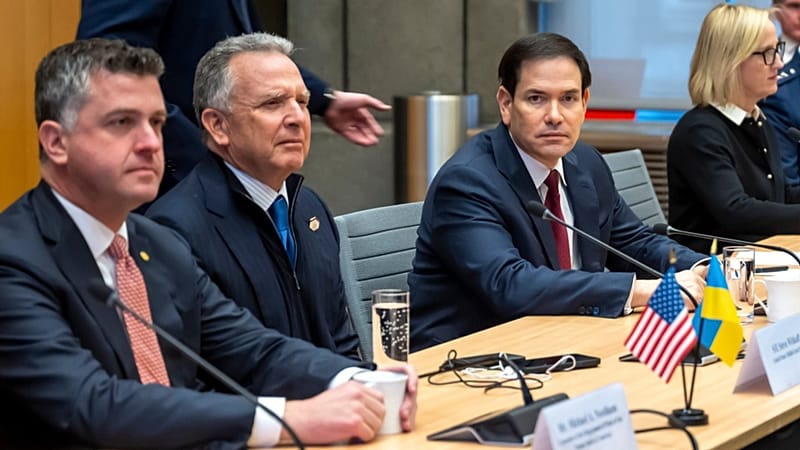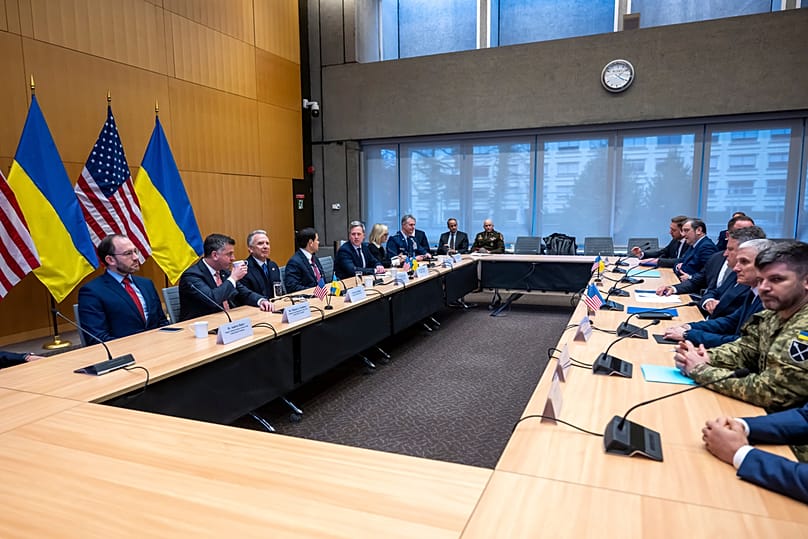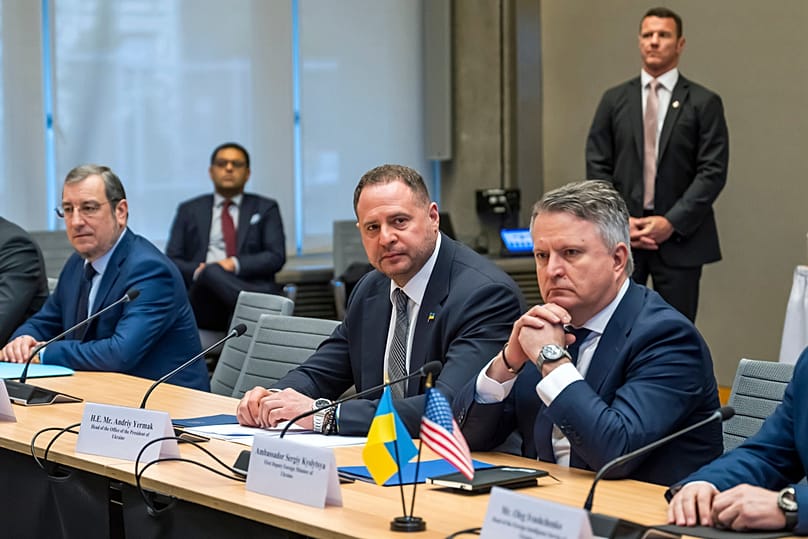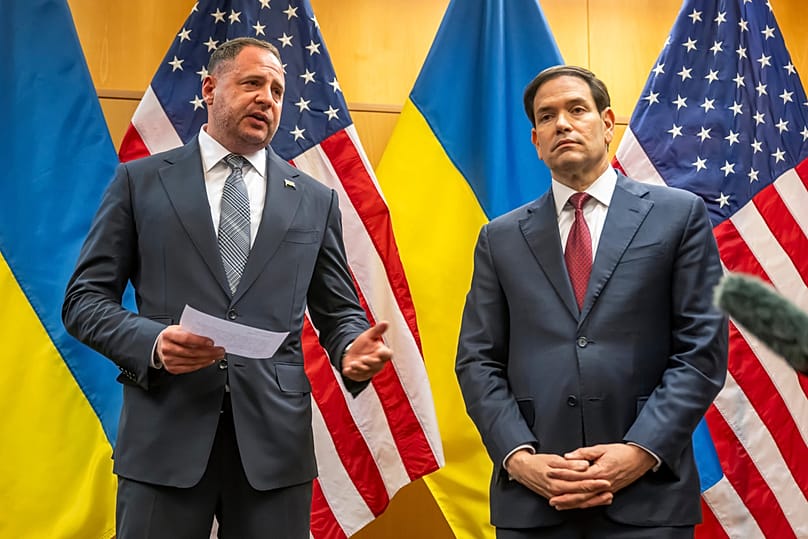US and Ukraine make progress in Geneva talks to end Russia's invasion

Top US and Ukrainian officials said they made progress on Sunday towards ending Russia’s invasion of Ukraine following high-stakes talks in the Swiss city of Geneva.
The talks were aimed at discussing US President Donald Trump’s peace plan for the embattled Ukraine, which sparked concern among many of Washington’s European allies, who viewed the plan as heavily conciliatory to Moscow.
US Secretary of State Marco Rubio, who led the US delegation in Geneva, said the talks were “very worthwhile” and constituted the most productive days in a “very long time”.
“I feel very optimistic that we can get something done,” said Rubio.
The top US diplomat however offered few details about what the breakthrough with his Ukrainian counterpart looked like, noting that higher-level officials will likely have to get involved soon and continue discussions on Monday and beyond.
He also downplayed the Thursday deadline set by Trump for Kyiv to respond to his proposal, stressing that officials want to see an end to the fighting as soon as possible.
“This is a very delicate moment,” said Rubio. “Some of it is semantics, or language. Others require higher-level decisions and consultations. Others, I think, just need more time to work through.”
The 28-point blueprint drawn up by the US to end the nearly four-year Russian full-scale invasion of Ukraine has sparked alarm in Kyiv and European capitals.
Ukrainian President Volodymyr Zelenskyy has said his country could face a stark choice between standing up for its sovereign rights and preserving the US support it so desperately relies on. Zelenskyy also asserted that Ukrainians “will always defend” their home.
The proposal accommodates many Russian demands that Zelenskyy has categorically rejected on dozens of occasions, including ceding large territories.
In a statement released on Sunday night after the talks, the White House said the Ukrainian delegation “affirmed that all of their principal concerns — security guarantees, long-term economic development, infrastructure protection, freedom of navigation, and political sovereignty — were thoroughly addressed during the meeting.”
It added that Kyiv “expressed appreciation for the structured approach taken to incorporate their feedback into each component of the emerging settlement framework.” The White House said changes made to the proposal now reflect “their national interests" and provide "credible and enforceable mechanisms to safeguard Ukraine’s security in both the near and long term.”
But the language of such positive steps came only after concerns about the original, Trump-endorsed deal intensified.
A bipartisan group of US senators said Rubio told them Saturday that the plan had originated with Russia and was actually a “wish list” for Moscow, rather than a serious push for peace.
German Chancellor Friedrich Merz said that he’d spoken to Trump and made clear there were some parts of the plans key European nations could agree on, but others where they could not.
“I told him that we are fully in line with Ukraine, that the sovereignty of this country must not be jeopardised,” Merz said in an interview with a German media outlet.
Rubio called the US proposal a “living breathing document” that would continue changing. He also made clear that any final product, once it’s ready, will still have to be presented to Moscow; “obviously, the Russians get a vote here.”
The positive assessment of what was discussed defied Trump himself. Before talks began, the president blasted Ukraine for a lack of gratitude for US military assistance while shying away from criticising Russia.
“Ukraine 'leadership' has expressed zero gratitude for our efforts, and Europe cotinues to by oil from Russia,” Trump posted on his social media site, Truth Social, on Sunday morning.
After Trump’s post, Zelenskyy cheered US-led efforts on security while also stressing that “the crux of the entire diplomatic situation is that it was Russia, and only Russia, that started this war.”
“Ukraine is grateful to the United States, to every American heart, and personally to President Trump,” Zelenskyy wrote in a post on Telegram, adding, “We thank everyone in Europe.”
“It is important not to forget the main goal – to stop Russia’s war and prevent it from ever igniting again,” he added.
Today




